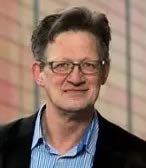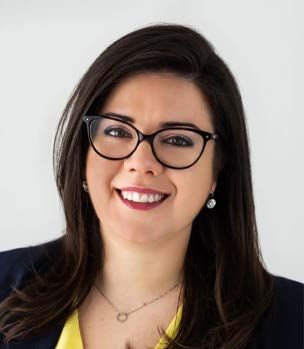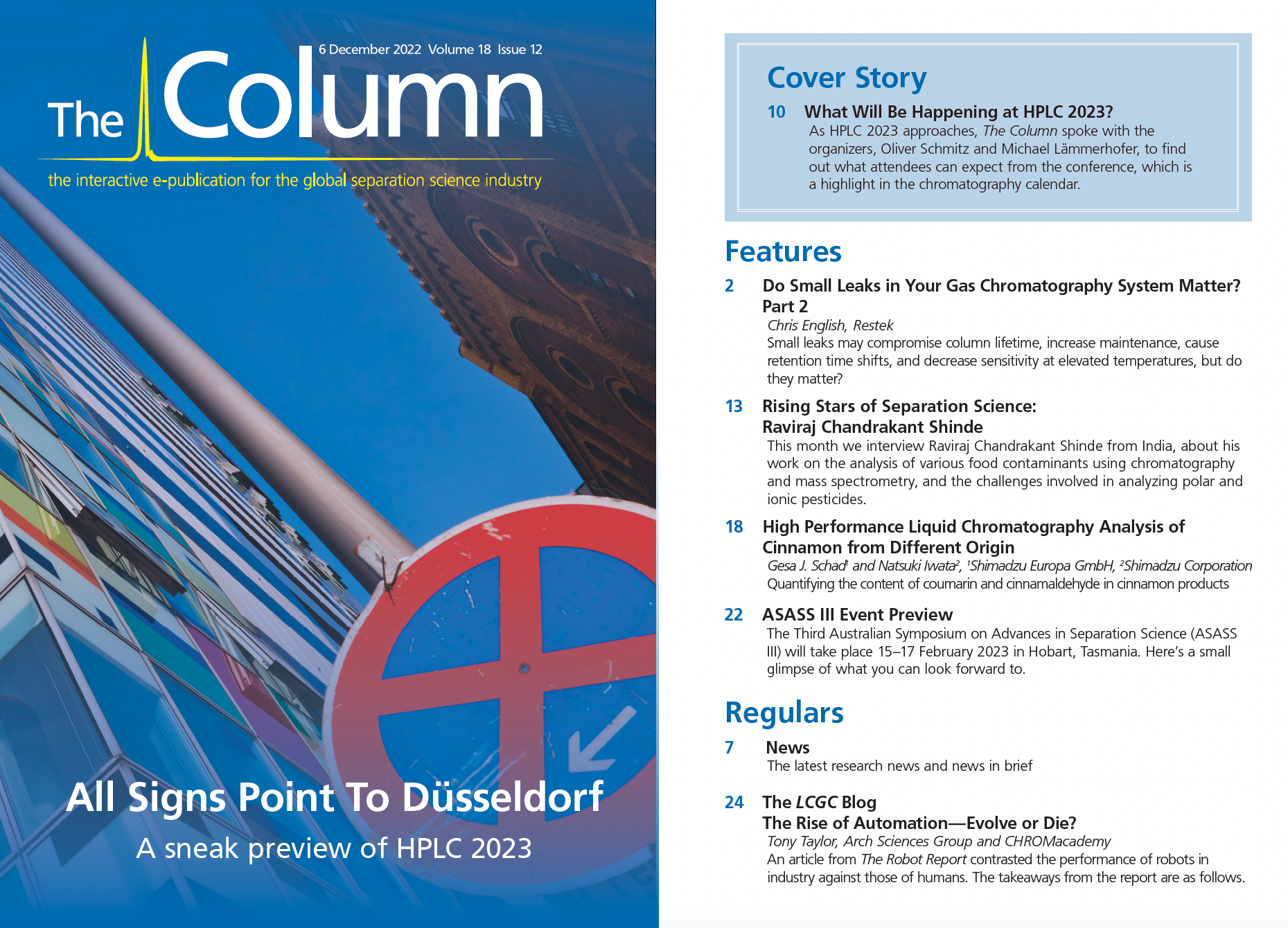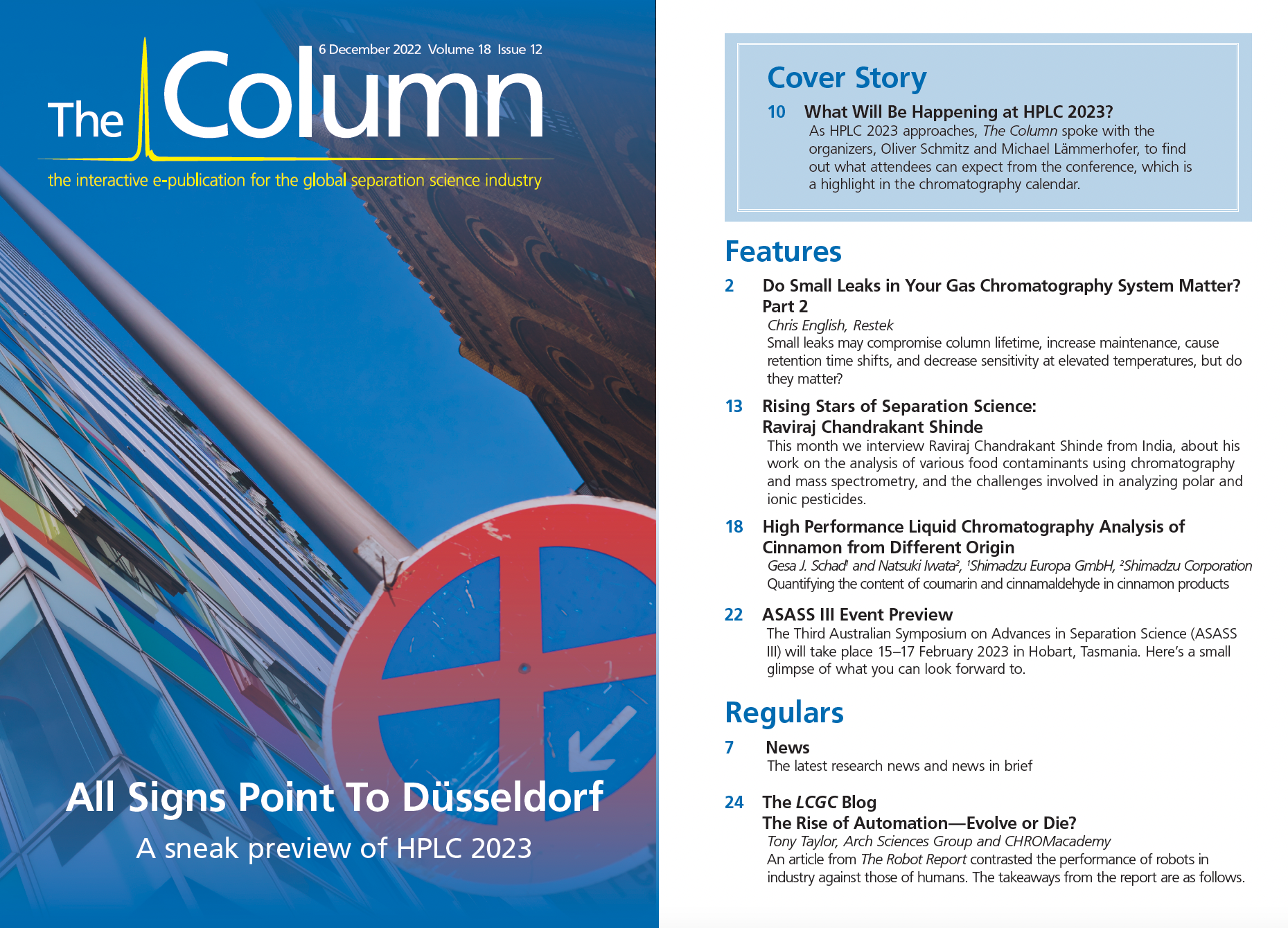The LCGC 2023 Winners of the Lifetime Achievement and Emerging Leader in Chromatography Awards
LCGC, the leading resource for separation scientists, is proud to announce that Peter J. Schoenmakers and Emanuela Gionfriddo are the winners of the 16th annual LCGC Lifetime Achievement and Emerging Leader in Chromatography Awards, respectively. Schoenmakers and Gionfriddo will be honoured in a symposium as part of the technical programme at the Pittcon 2023 conference in March 2023.
The Lifetime Achievement Award
The Lifetime Achievement in Chromatography Award honours an outstanding professional for a lifetime of contributions to the advancement of chromatographic techniques and applications.
Peter J. Schoenmakers

Schoenmakers, the 2023 winner, is a professor of analytical chemistry and a former scientific director of the van ’t Hoff Institute for Molecular Science at the University of Amsterdam. He is best known for his work in liquid chromatography (LC), starting with the theory of gradient elution in reversed-phase chromatography and its optimization, and continuing through his many contributions to the analysis of polymers and his pioneering work in developing two- and three-dimensional LC methods, particularly of polymers.
His earliest work focused on a general theory of gradient elution LC. His 1978 paper, “Gradient selection in reversed-phase liquid chromatography”, is a foundational work and has been cited 300 times.
Schoenmakers is unquestionably one of a small group of pre-eminent contributors to the development of two-dimensional LC (2D-LC). He has contributed extensively to areas such as the optimization of 2D-LC including his innovative work on Pareto optimization, three-dimensional LC (3D-LC) separations, the theory of resolution in 2D separations, and a quite novel method for determining the fractional coverage. Additionally, Schoenmakers has done seminal work on ways to minimize sample dilution.
Schoenmakers has also contributed significantly to the area of polymer characterization. Initially he focused on size‑exclusion chromatography (SEC) and reversed-phase LC of homo polymers and co-polymers. He also studied “LC at the critical‑composition” of polymers. He explored the use of multiple types of detectors, such as optical absorbance, multi-angle light scattering, and Fourier transform infrared detectors. His more recent work in polymer analysis has been his development and use of 2D-LC and 3D-LC. He is truly a pioneer in this field.
The Emerging Leader Award
The Emerging Leader in Chromatography Award recognizes the achievements and aspirations of a talented young separation scientist who has made strides early in his or her career towards the advancement of chromatographic techniques and applications.
Emanuela Gionfriddo

Gionfriddo, the 2023 winner, received her Ph.D. in chemistry in 2013 at the University of Calabria, in Italy. Following work as a postdoctoral fellow and research associate at the University of Waterloo, in Canada, in 2018 she became an assistant professor of chemistry at the University of Toledo, in Ohio, USA, where she is the founding member of the Dr. Nina McClelland Laboratory for Water Chemistry and Environmental Analysis.
Gionfriddo’s contributions to separation science involve the implementation of alternative, green microseparation methodologies for extraction of small molecules from challenging biological and environmental samples. Her research focus has important implications for environmental monitoring of contaminants, exposomics studies in biological samples and living organisms, and targeted and untargeted metabolomics. Of particular relevance is her contribution in developing and testing biocompatible extraction phases for microextraction that have enabled the extraction of a broad range of molecules in complex media.
She currently serves on the University of Toledo Water Task Force and on the Scientific Council of Advisors for the State of Ohio’s Attorney General’s Office.

A Novel LC–QTOF-MS DIA Method for Pesticide Quantification and Screening in Agricultural Waters
May 8th 2025Scientists from the University of Santiago de Compostela developed a liquid chromatography quadrupole time-of-flight mass spectrometry (LC–QTOF-MS) operated in data-independent acquisition (DIA) mode for pesticide quantification in agriculturally impacted waters.
Investigating 3D-Printable Stationary Phases in Liquid Chromatography
May 7th 20253D printing technology has potential in chromatography, but a major challenge is developing materials with both high porosity and robust mechanical properties. Recently, scientists compared the separation performances of eight different 3D printable stationary phases.

.png&w=3840&q=75)

.png&w=3840&q=75)



.png&w=3840&q=75)



.png&w=3840&q=75)














